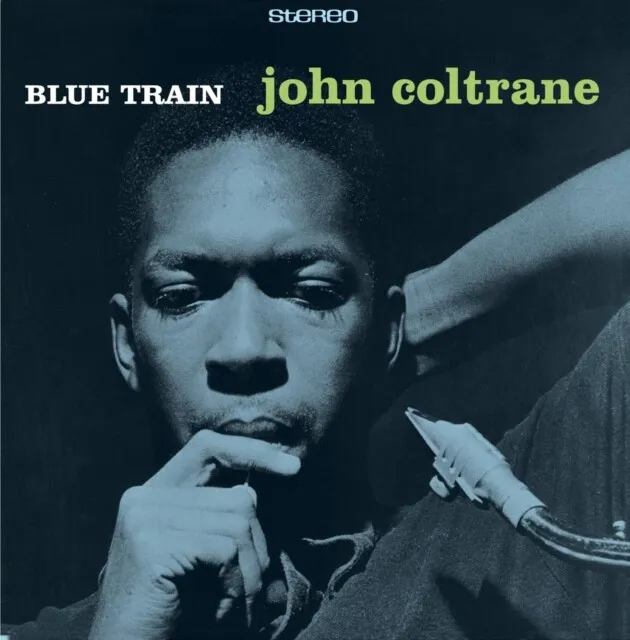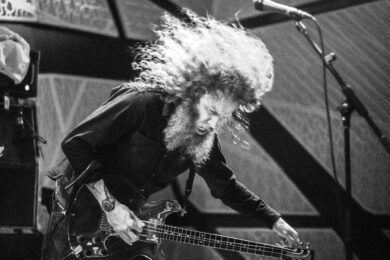5. John ColtraneBlue Train

This is a funny one because I heard this record quite a bit before I actively listened to it on my own. My dad listened to a lot of jazz and for years that was my parents’ music and therefore completely uninteresting to me. I think I might have come round to it earlier if it had not been my parents’ music but there was that kind of angsty teen contrariness where I was like, ‘I’m not going to listen to this, this is what my parents like.’ However, around the time that I was about 15 or 16 that world of music broke open for me from listening to this record.
I don’t even remember why I was listening to it, but I do remember the moment. I was laying down, listening to this record in my headphones and his first solo on the album was completely startling and revelatory to me. The opening refrain was interesting too and having that touchstone of structure as an entry point was good, but it was really the solo itself. The beauty of it, the fluidity, and the expressiveness and the soul of it really. He is such a deeply soulful player. I later recognised that, during the years when I was hearing jazz in my household but not really listening to it by choice, I was absorbing it, and it informed the way that I started to later make music. Especially in the last 10 years with Sumac. And what I was hearing in those records and later started to appreciate was something that I also liked about Hendrix, where there are these recognisable refrains or themes that are used to introduce a song and sometimes close it out but what happens in between when people are soloing is left open to constant reinterpretation.
It also changed my mind about what soloing was. Soloing didn’t need to be this thing about technical expertise, and it definitely wasn’t this thing that in metal contexts detracted from the songs, where it was just an excuse for someone to show off their technical ability and take centre stage for a minute. It was really a chance for someone to offer their voice up to the listener in a way that was unhindered by having to follow written passages. A lot of the jazz that I heard, the solos were entirely based on improvisation. It meant that the player wasn’t just going through the motions, they had to be very present and alive with their instrument in that moment. Something about that process of engagement with the now was really important for me. Especially when it came to touring, to have that freedom to constantly reinterpret things and not simply recreate them. I didn’t want to be performing these songs the same way over and over. I wanted them to be these things that could continue to grow and change over time and allow me and us the opportunity to grow and change along with them.


